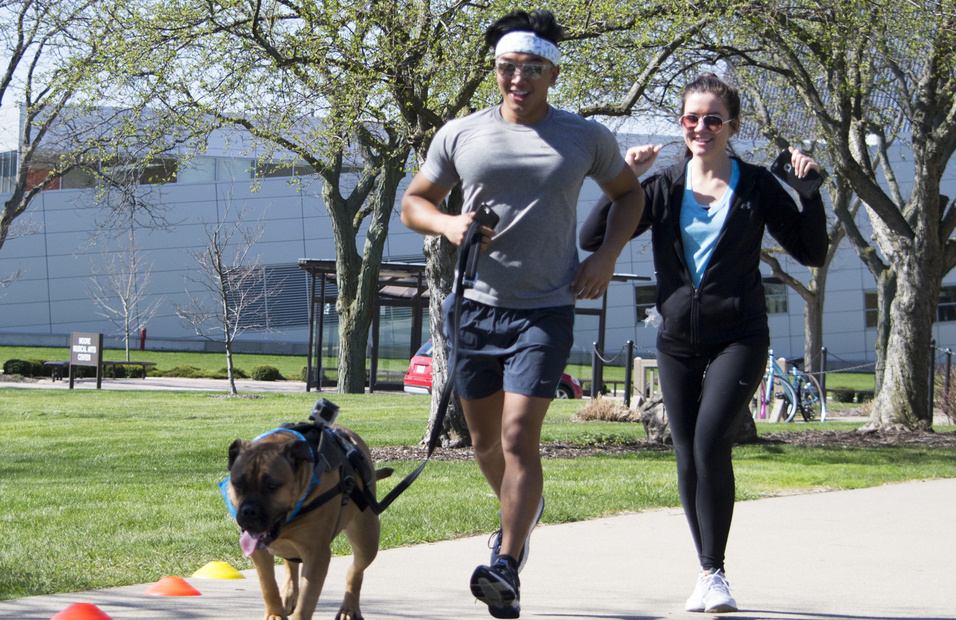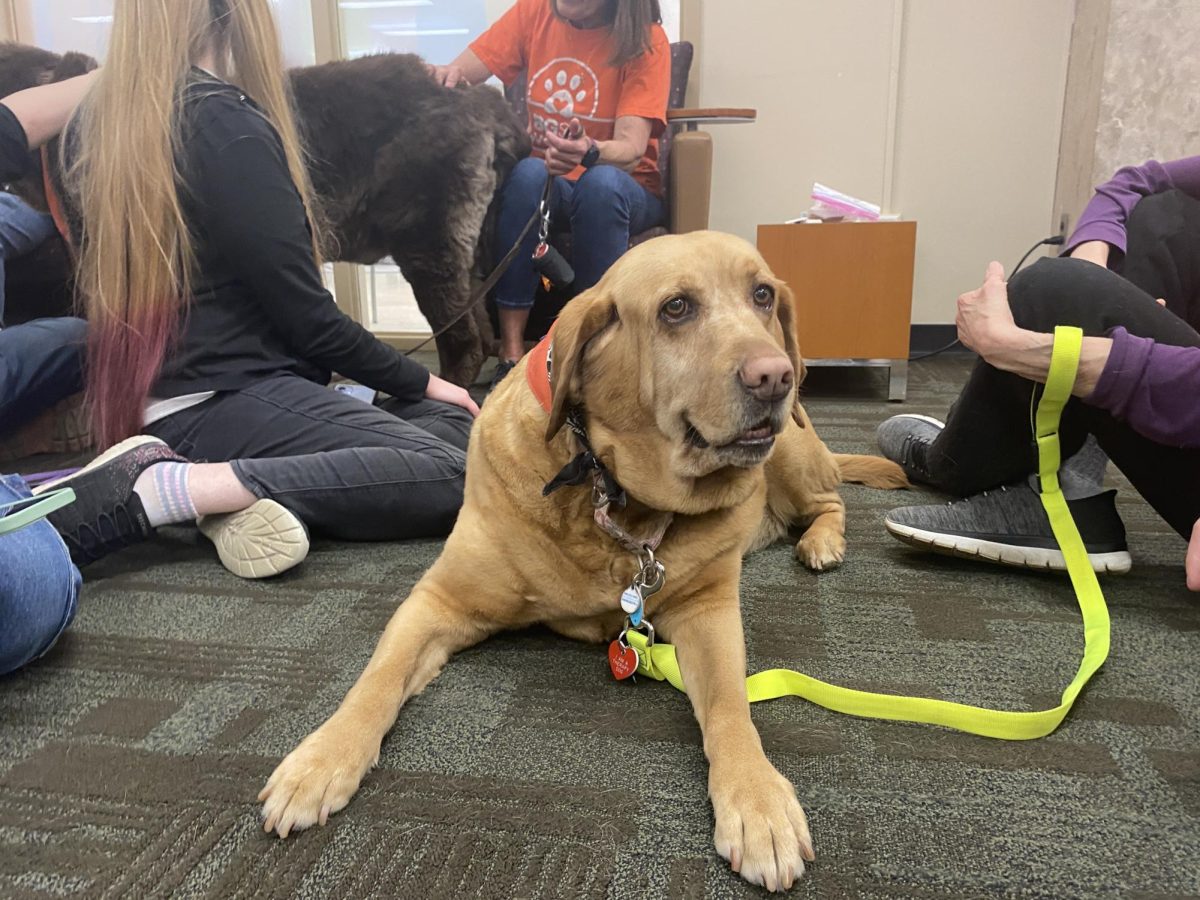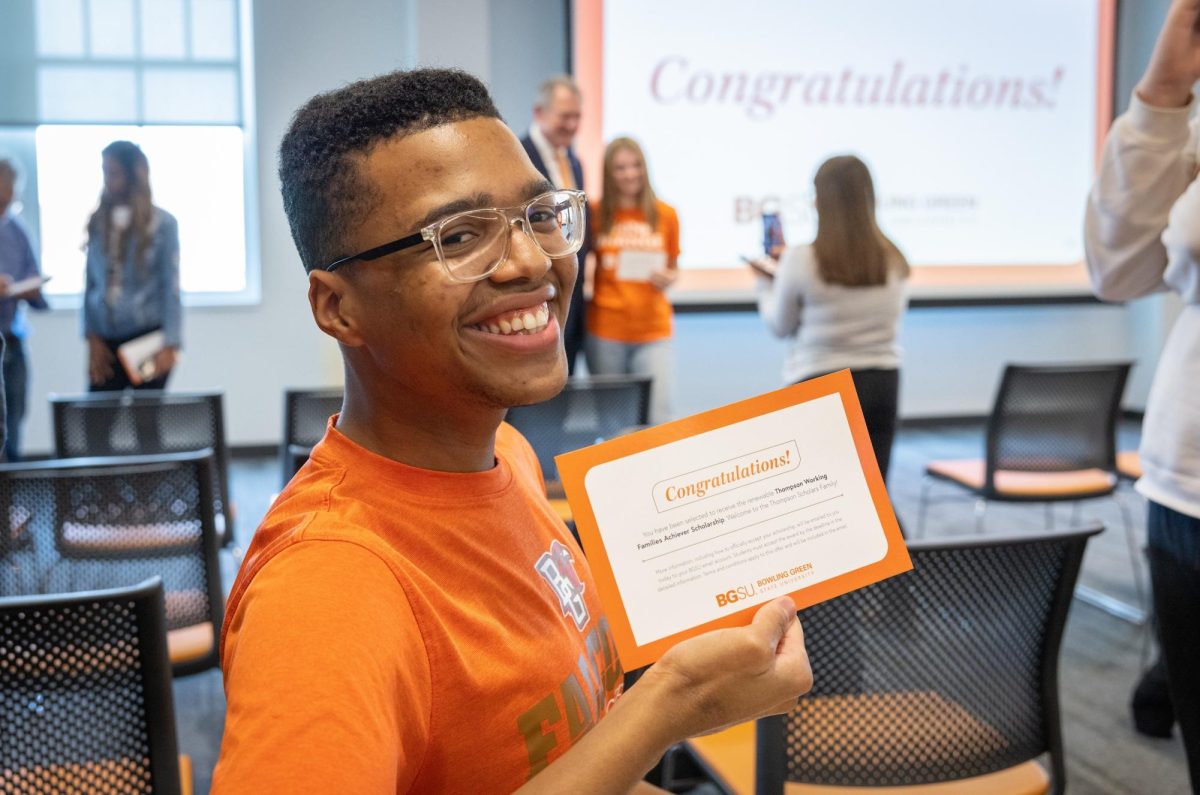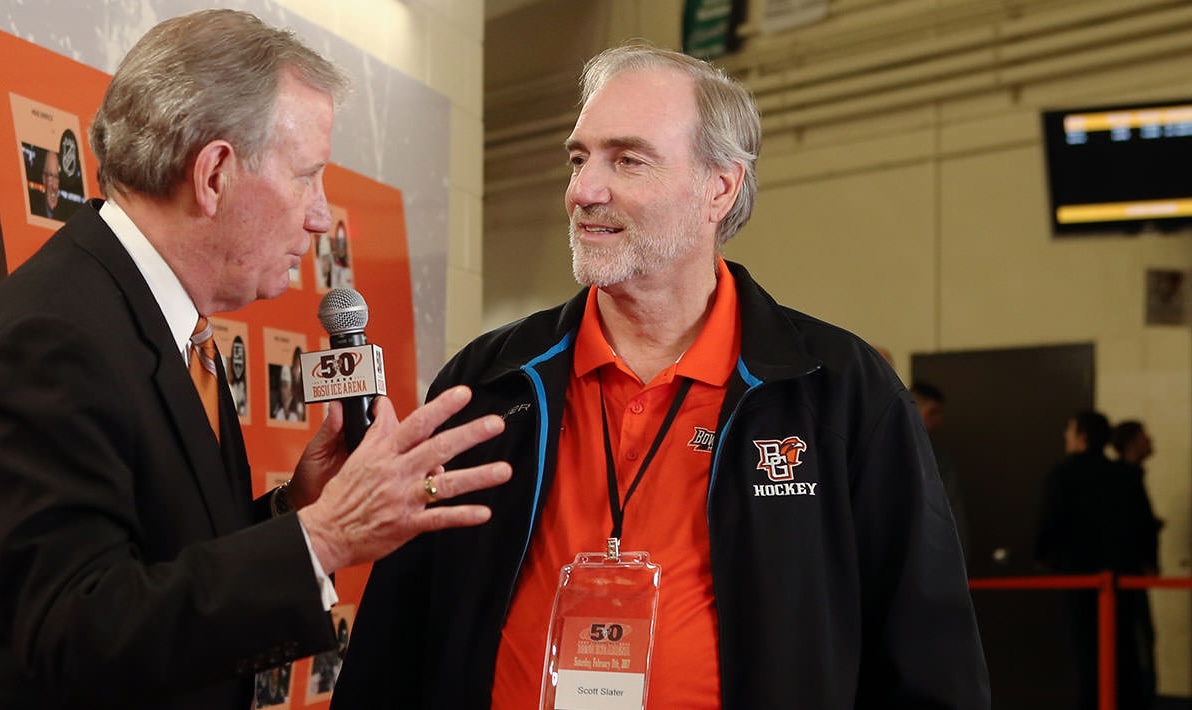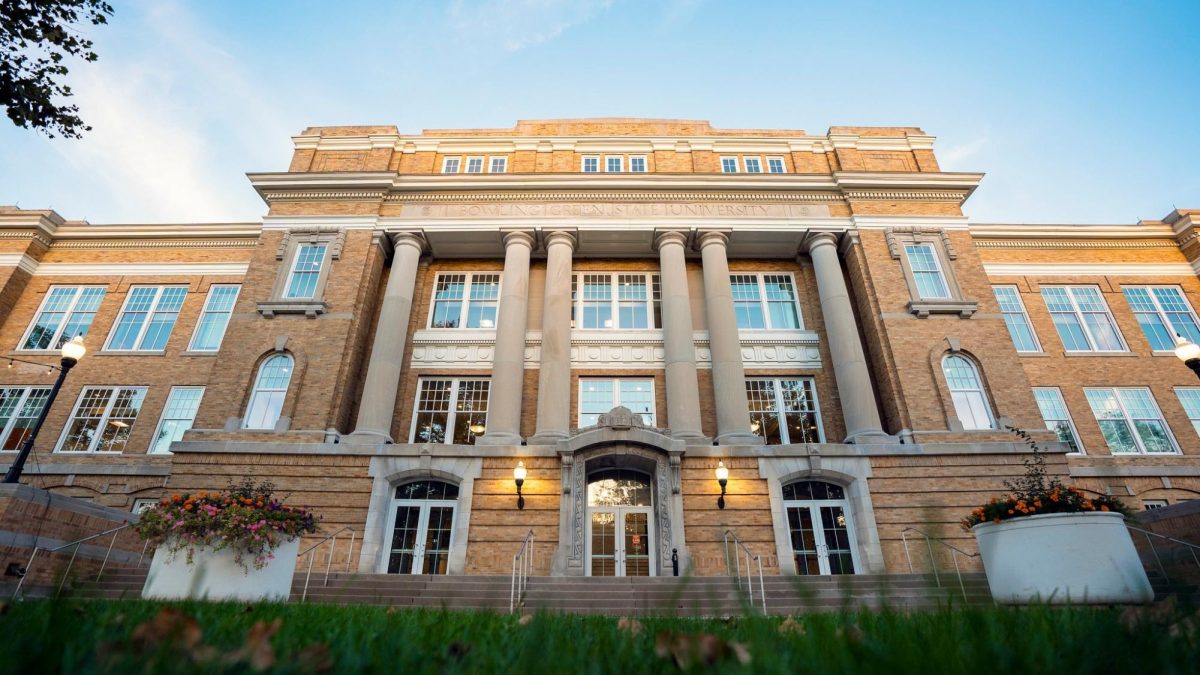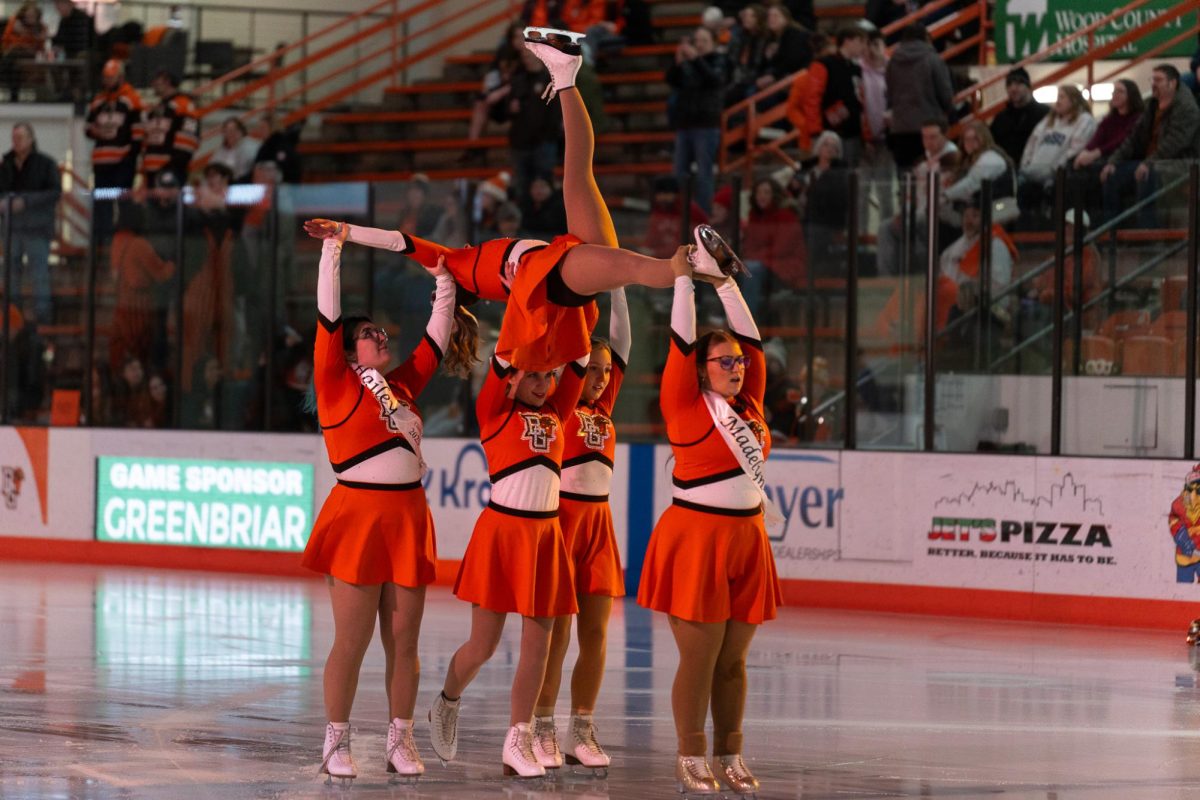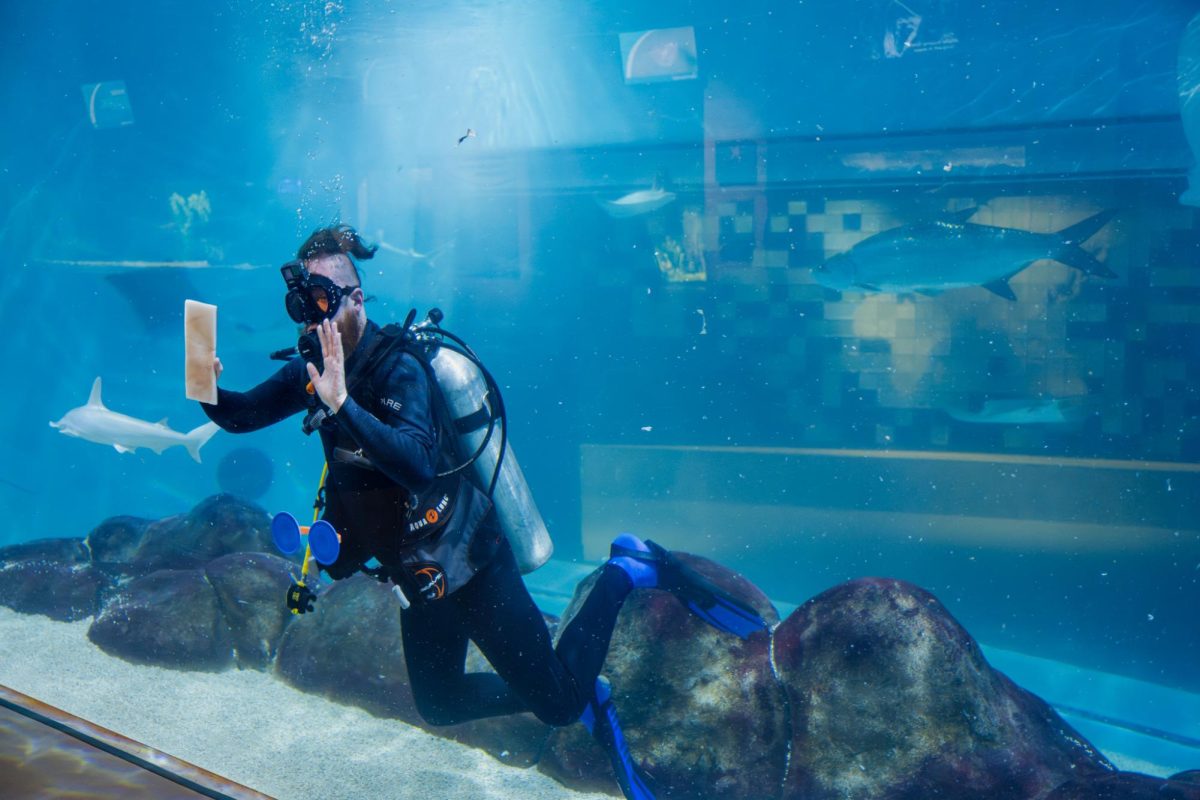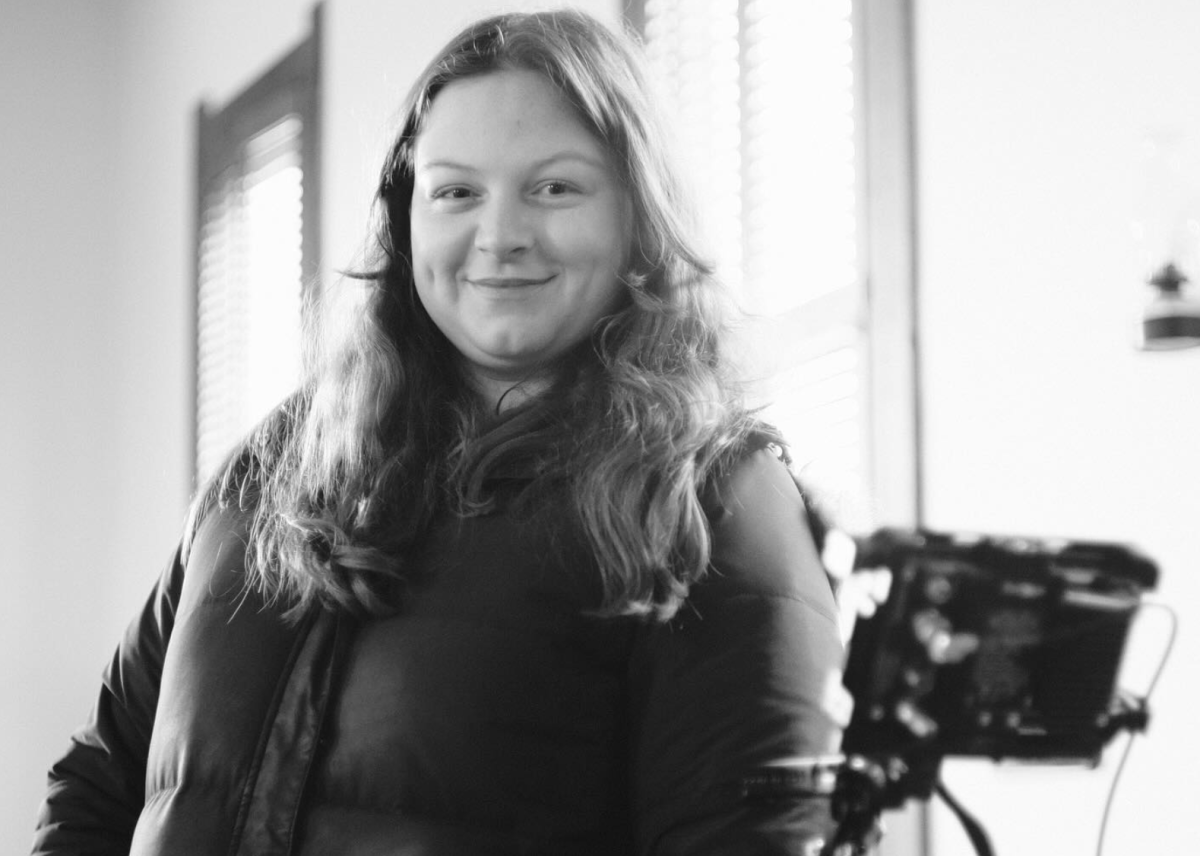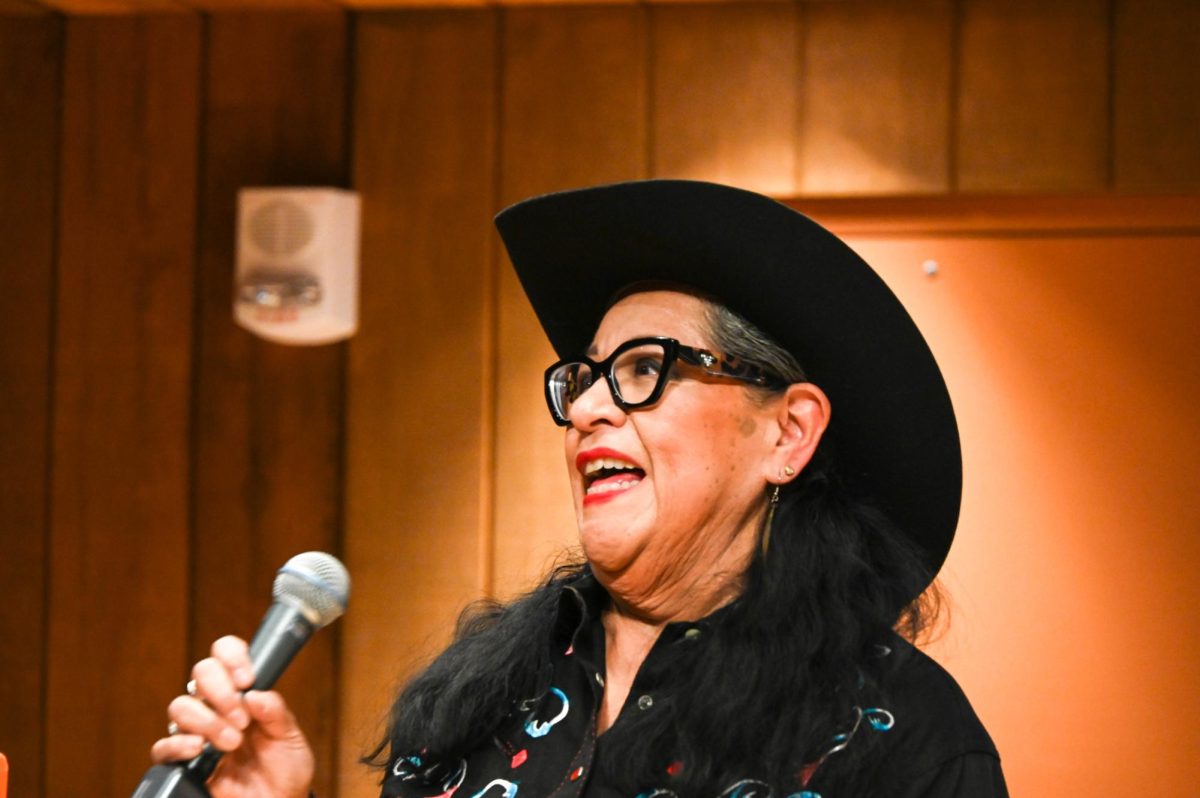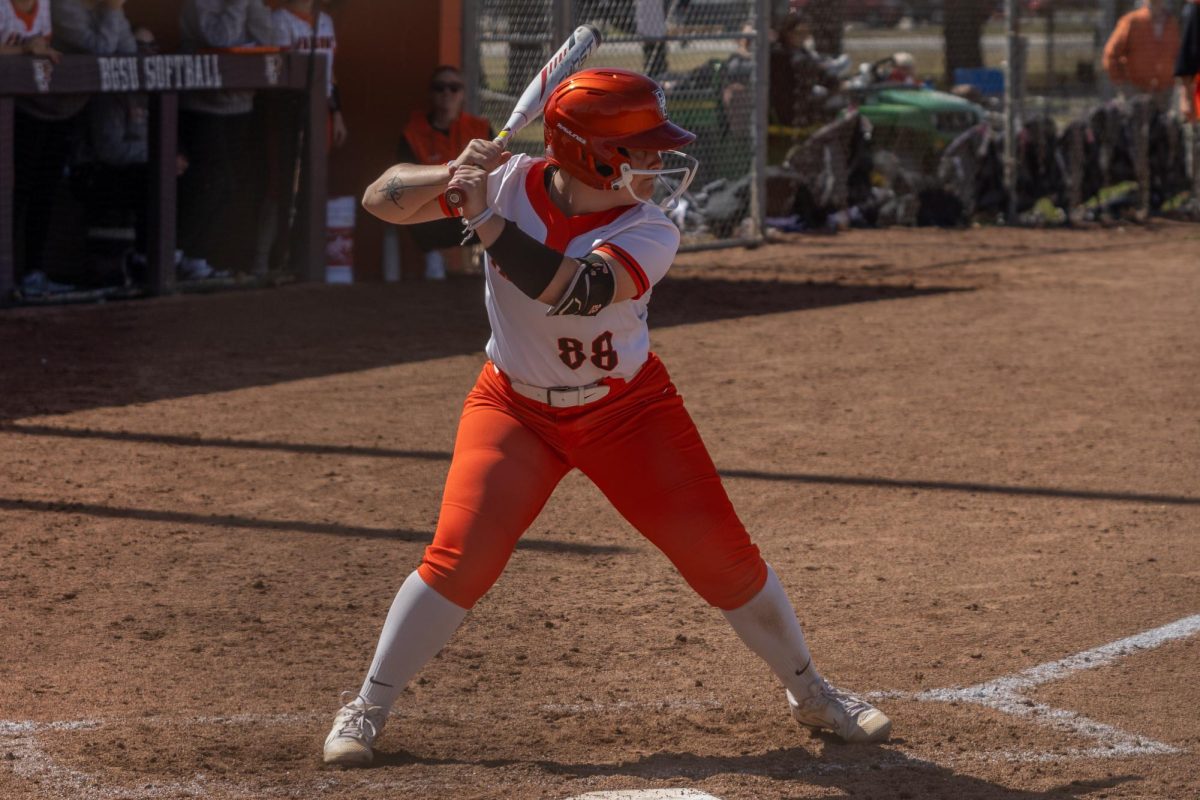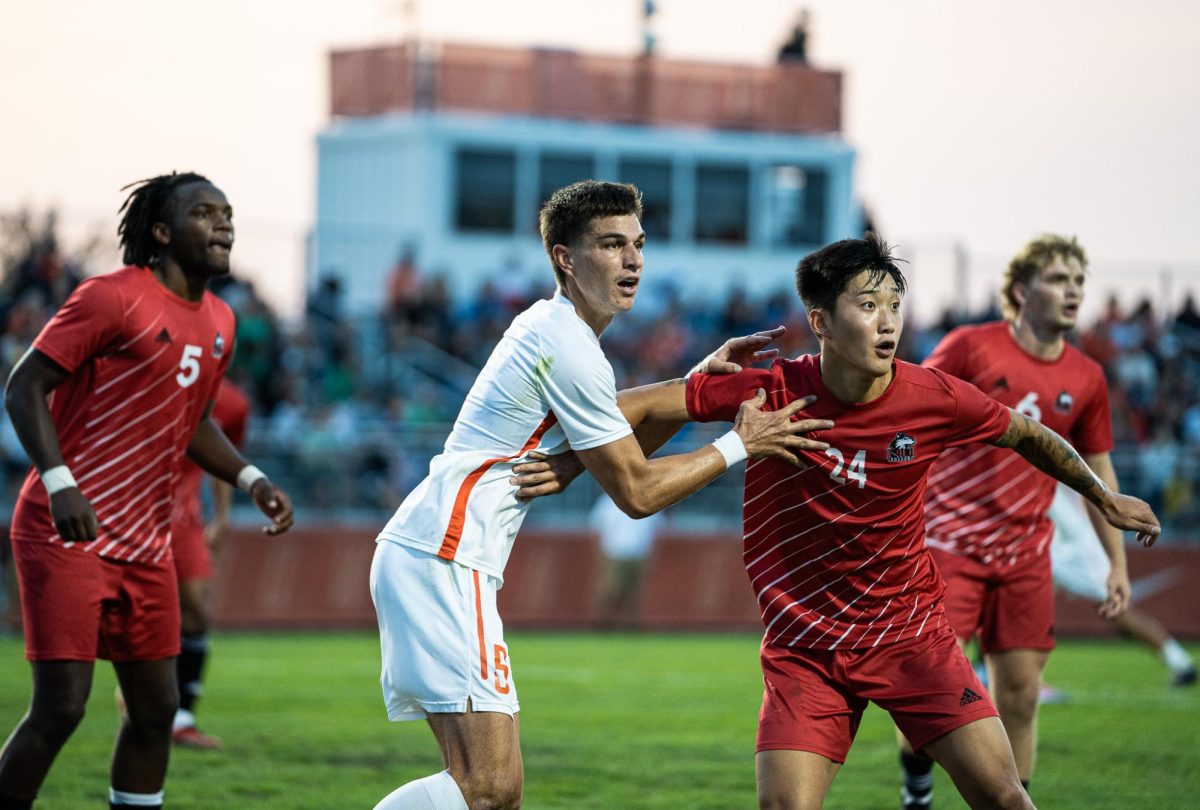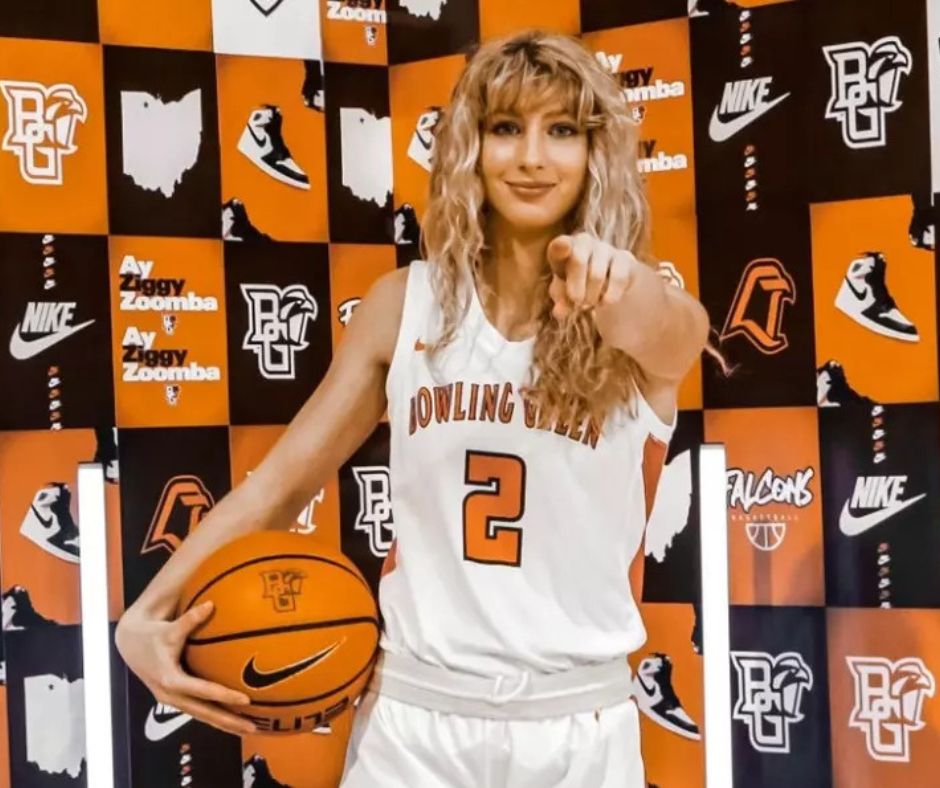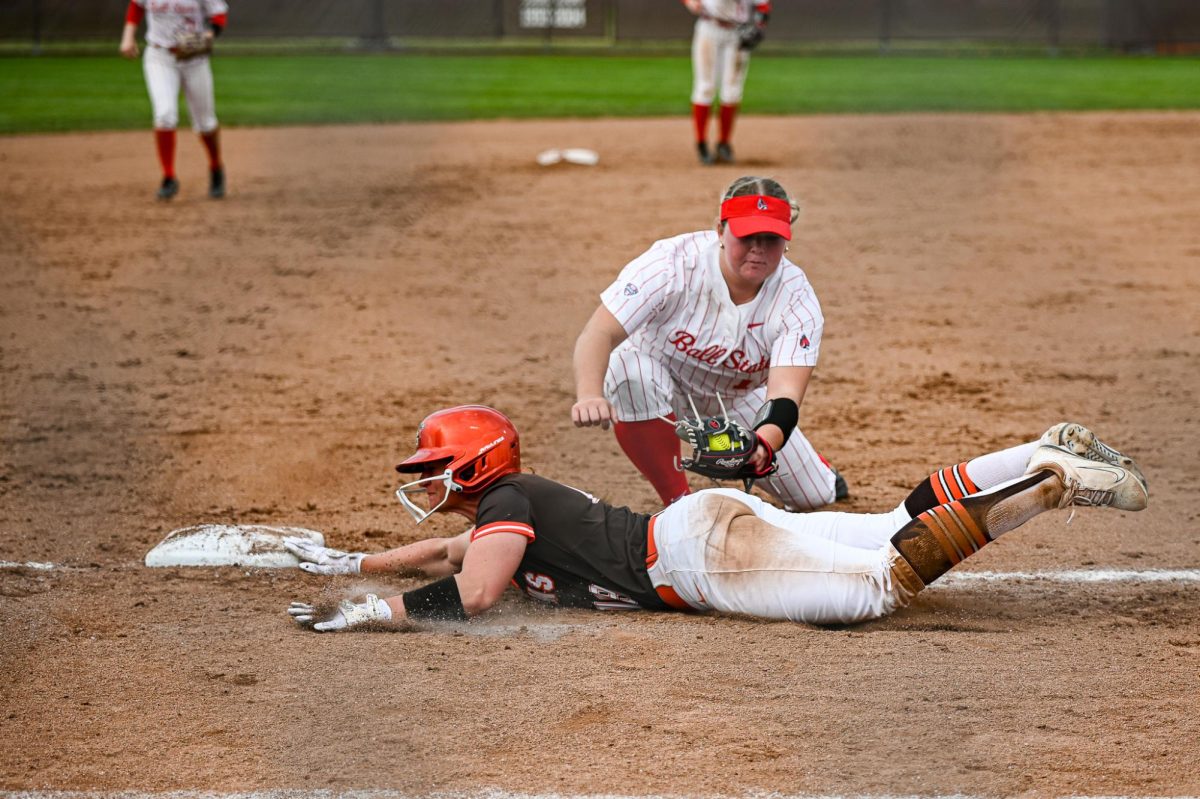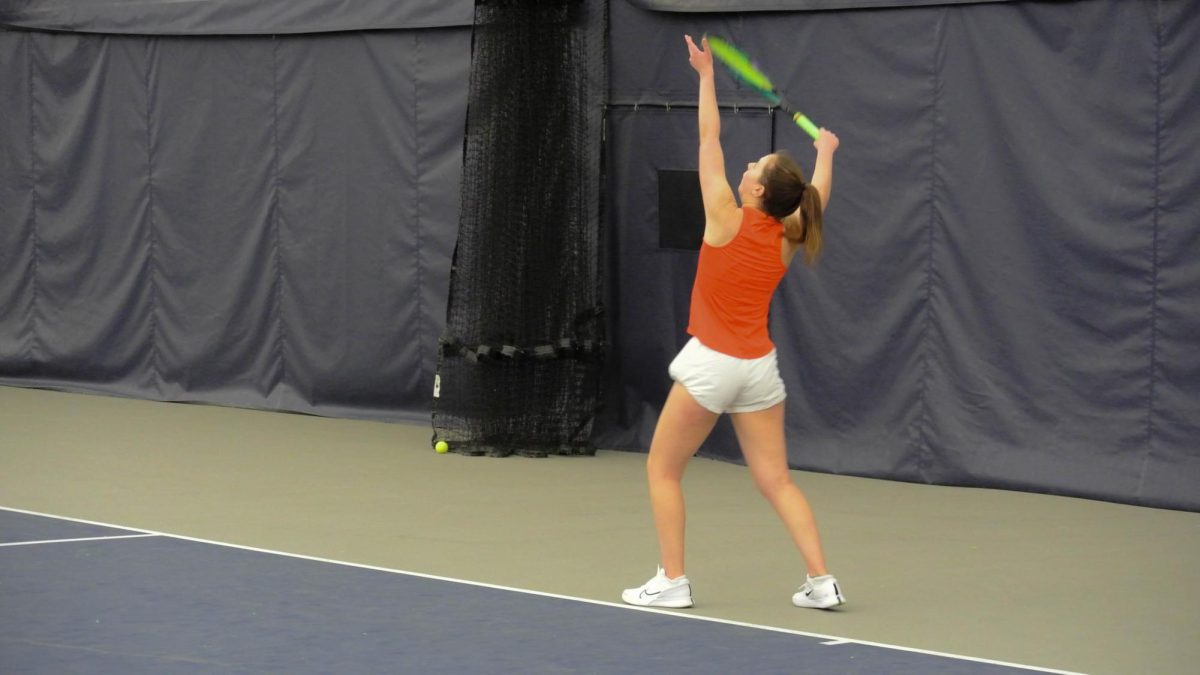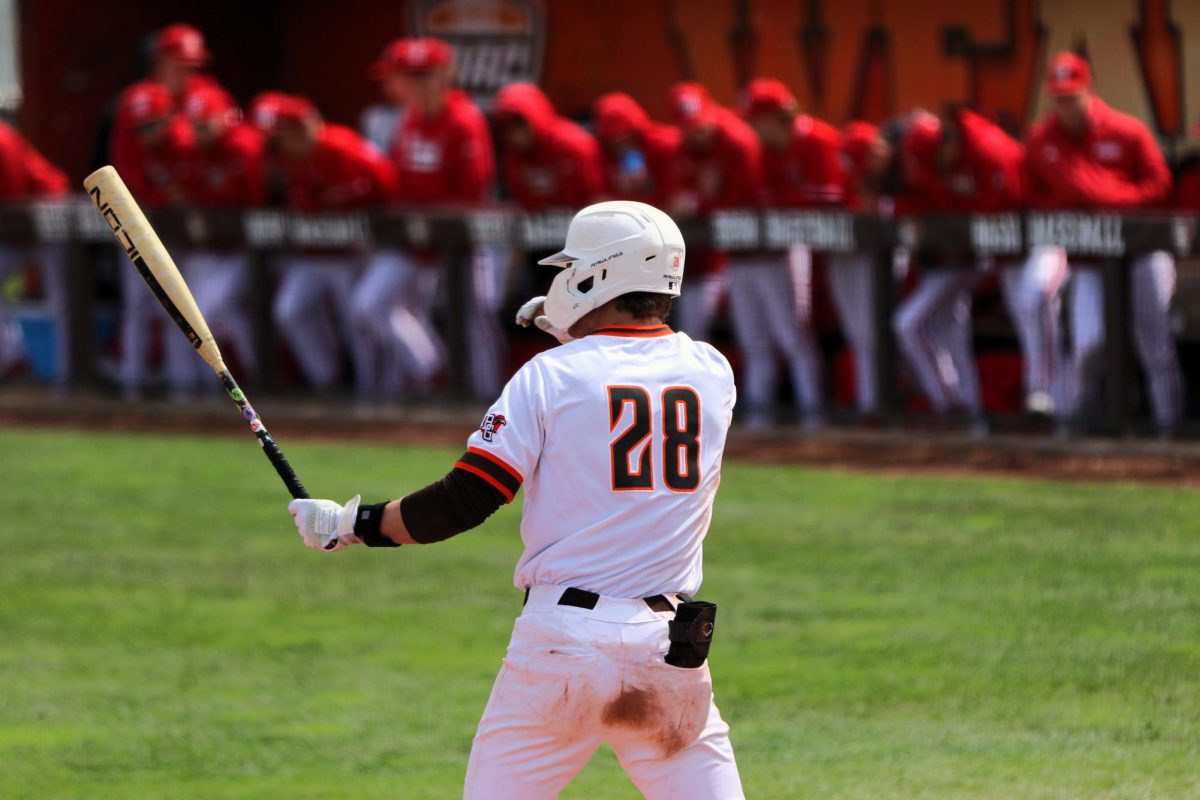Amanda Washko balances physical health in one hand and mental health in the other, but this juggling act can be difficult for even the most agile student-athletes.
As a senior swimmer, Washko’s schedule is hectic. Any given day, she and her teammates spend hours practicing, receiving treatment, working to prevent injuries and meeting with sports psychologists. Student-athletes also attend classes, complete homework and make time for a healthy dinner before an early bedtime to prepare for a meet the next day.
But Washko says despite the crazy schedule, being a student-athlete is worth it.
“I love having the opportunity to always have something to do, to represent BG and do a little bit more than what most people get to do on a daily basis,” she said. “But because of the demand sometimes, there isn’t room to express the need to have a break or to express the need to not be okay.”
Emphasizing that it is okay to not be okay, the Mid-American Conference Mental Health Awareness Week focuses on managing both physical and mental health as a student-athlete.
During this week, colleges in the conference organize activities, show support for student-athletes and provide mental health resources. At the University, student representatives from athletic organizations and teams are spreading awareness to their fellow Falcons with a special focus on body image.
The week’s activities include workshops, speakers and several interactive displays for student-athletes to engage with. One of the displays the Student-Athlete Advisory Committee has planned for this week is a wall of kindness.
Throughout the week, half of a bulletin board outside the Office of Student-Athlete Services will be devoted to quotes and affirmations under the label “Take what you need.” The other half of the board will be labeled “Do what you can” and filled with challenges for students to take.
Meghan Horn, a student-athlete advisor, said these good deeds can range from “telling the dining hall worker that you appreciate what they do for you everyday” to “give a high-five to everyone on your way to class.”
All of the activities aim to spread awareness about resources and decrease the stigma surrounding mental health struggles in athletes.
“That’s one of the biggest goals (of the week): just to say it’s okay to have issues,” Washko said.
These mental health stigmas are still perpetuated on sports teams today, as it is often a reflex to accuse a struggling athlete of being weak, said Kohl Taberner, a senior cross country runner and president of SAAC.
“I think a lot of student-athletes suffer more than they let on, and if they were to come out and explain it and they had somebody they could go to, it’d be a lot easier on them,” Taberner said.
The University provides resources to make it easier on student-athletes. From the Counseling Center to sports psychology graduate assistants assigned to teams, athletes have several formal outlets.
Another resource the MAC Mental Health Awareness Week hopes to make students aware of is their own teams.
SAAC Secretary and senior runner Elena Lancioni said knowledgeable coaches and teammates can direct students to the assistance they need.
“It is so important to recognize that you need help and go and seek the right support,” Lancioni said. “Sometimes we don’t know we need help and that is why it is important as a teammate to know how to help someone who may be struggling.”
Macie Linne, a junior volleyball player and vice president of SAAC, said a teammate helped her locate the resources she needed to improve her mental health.
“We’ve kind of been able to direct each other,” Linne said. “Then we’re able to connect even more as a team because we are able to have these open conversations.”
The MAC Mental Health Awareness Week is a way student-athletes intend to start the conversation about the difficulties many of them face while trying to juggle physical and mental health. They hope to extend this conversation beyond their respective playing fields to the greater community, Taberner said.
“MAC Mental Health Awareness Week, while it is predominantly about athletes, it’s not just related to athletes. It’s really about spreading awareness about mental health to everybody.”


